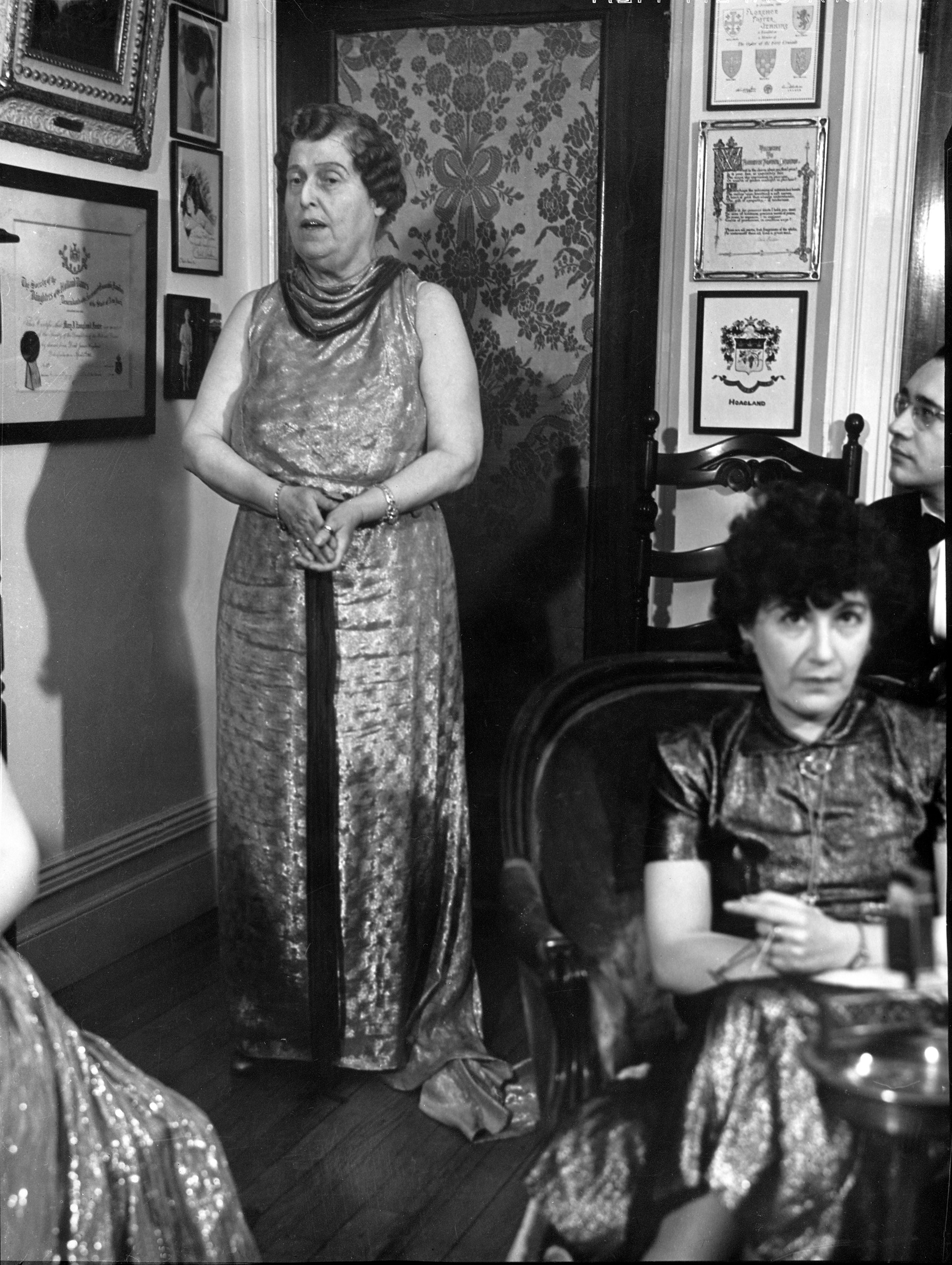
It sounds like a farce: in the new movie Florence Foster Jenkins, out Friday, Meryl Streep plays the eponymous socialite, a woman whose singing voice is so bad it’s good. But Jenkins was a real person—and if she were alive today, she’d probably be going viral on YouTube.
She was born in 1868 into a wealthy family in Wilkes-Barre, Penn.; her father was a lawyer and a member of the state legislature. When her parents died, she inherited enough money to take voice lessons, put out five recordings and host an annual concert at the Ritz-Carlton in New York City throughout the 1930s and 40s, as well as other performances in Newport, R.I.; Washington, D.C.; and Boston, according to the American National Biography. Founding a Verdi club helped her grow an audience, as did the work of her manager and longtime partner, the actor St. Clair Bayfield (played by Hugh Grant in the film). As the above LIFE magazine photo shows, she hosted recitals at her home in New York City’s Seymour hotel, where she is said to have also kept guests entertained with a bathtub of potato salad and a collection of dining room chairs that she claimed Americans had died sitting in, according to a new biography of the amateur singer released with the film’s script.
Get your history fix in one place: sign up for the weekly TIME History newsletter
TIME’s reviews of her performance were just as colorful and uninhibited as the singer herself. As TIME described her 1934 concert at the Ritz-Carlton Hotel:
Mrs. Jenkins appeared in flame-colored velvet, with yellow ringlets piled high on her head. For a starter she picked Brahms’ Die Mainacht, subtitled on her gilt program as “O singer, if thou canst not dream, leave this song unsung.” Mrs. Jenkins could dream if she could not sing. With her hands clasped to her heart she passed on to Vergebliches Standchen, which she had labeled “The Serenade in Vain.”
The audience, as Mrs. Jenkins’ audiences invariably do, behaved very badly. In the back of the hall men and women in full evening dress made no attempt to control their laughter. Dignified gentlemen sat with handkerchiefs stuffed in their mouths and tears of mirth streaming down their cheeks. But Mrs. Jenkins went bravely on. For a Spanish group she wore a mantilla, carried a big feather fan, undertook a few little dancing steps to convey more spirit. While she was getting her breath, the Pascarella chamber group played Dvorak’s Quintet and cameramen photographed the happy laughing faces in the audience.
Sometimes, her concerts were painful in more ways than one, the review noted, not only because she “struggled” with the songs but also because she once literally tossed roses into the audience and “in her excitement, the basket slipped from her hand, [and] hit an old gentleman on the head.”
In 1941, the magazine described her recording of Mozart’s The Magic Flute as “wild wallowings in descending trills” and said “her repeated staccato notes” sounded like “a cuckoo in its cups.” And as the magazine wrote in 1942: “Critics have long wondered whether Coloratura Jenkins‘ art can be described as singing at all. But she will intrepidly attack any aria, scale its altitudes in great swoops and hoots, assay its descending trills with the vigor of a maudlin cuckoo.”
Yet she made it to Carnegie Hall on October 25, 1944, thanks to such practice, practice, practice leaving “dignified gentlemen” with “tears of mirth streaming down their cheeks,” as TIME put it. Her last and most famous concert, it sold out in just two hours, according to the acclaimed music venue.
A month later, she died of a heart attack at age 76, and some suggested that the scathing reviews killed her. You can judge for yourself whether they were deserved:
—
More Must-Reads from TIME
- Cybersecurity Experts Are Sounding the Alarm on DOGE
- Meet the 2025 Women of the Year
- The Harsh Truth About Disability Inclusion
- Why Do More Young Adults Have Cancer?
- Colman Domingo Leads With Radical Love
- How to Get Better at Doing Things Alone
- Michelle Zauner Stares Down the Darkness
Write to Olivia B. Waxman at olivia.waxman@time.com



